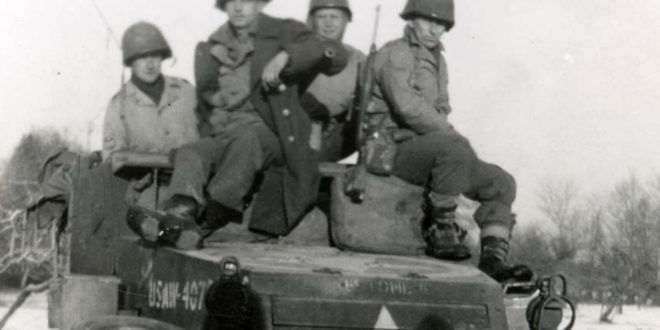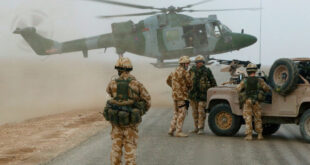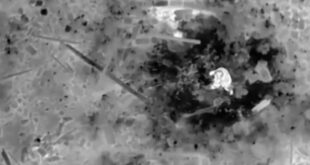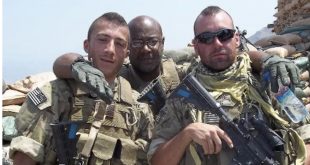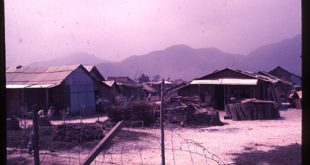When American forces liberated the Grand Duchy of Luxembourg from Germany in September 1944, the GIs found an unexpected home away from home. Thousands remained in Luxembourg to rest, and restore their morale – and in the process, brought decades of Thanksgiving to their newfound friends.
It all started in November, 1944, when battle-fatigued troops from the 28th US Infantry “Keystone” Division arrived from the area south of Aachen. They had just fought in the bloody battle of the Huertgen Forest, and needed respite.
Despite language problems, the locals were happy to host their “American liberators.” Villagers invited the soldiers into their homes. In exchange, a bit of American culture came to Luxembourg. Big band and jazz music, which the Nazis had banned, wafted over the airwaves and on gramophones. Baseball became omnipresent, and farm boys soon learned how to handle a bat. In addition, U.S. food products, including C rations, found their way to the locals’ tables.
Although in late fall of 1944 there were no more combat actions in northern Luxembourg, the units of the 28th Infantry Division were always on the alert. From time to time, patrols clashed with each other, and bursts of automatic weapons could be heard. But overall, it was very quiet in late November.

The GIs in Luxembourg planned to have a traditional Thanksgiving turkey dinner with trimmings.
The villagers could hardly believe their eyes when GMC trucks arrived, carrying live turkeys, along with boxes of flaked potatoes, cans of cranberry jelly, and more.
All day long the GI chefs were busy cooking turkeys in their gasoline-operated field stoves. The smell of freshly-cooked turkey filled the air.
At mealtime, the troops lined up for their very special chow. They filed through the mess tents, filling their mess kits with traditional Thanksgiving fare. And, like true Pilgrims, they shared their feast with their new friends. They entertained the Luxembourg families and villagers, and drank “Quetsch,” a strong local booze distilled from plums.

More than 75 years later, that original dinner has come to symbolize the Allied liberation of Luxembourg. To this day, the country holds reenactments of the event while wearing WWII American Army uniforms.
The holiday has taken hold.
The diplomatic corps marks the day, with the U.S. Embassy hosting annual Thanksgiving meals.
The event is “a time-honored celebration of gratitude and togetherness” between the U.S. and Luxembourg, said the U.S. Embassy Luxembourg.
Others simply hold Thanksgiving in their homes.
“The celebration, which originated on the other side of the Atlantic, is beginning to take on a growing importance in Luxembourg, thanks to the expatriates who live here and the American embassy,” according to Yannick Burrows, writing in Kachen, a Luxembourg food publication.
Today in Luxembourg, families still are learning the basics of the holiday.
“Beyond the feast, Thanksgiving is rich in traditions,” Burrows wrote. “Families often start the day watching the Macy’s Thanksgiving Day Parade, a festive event featuring giant balloons, elaborate floats, and musical performances. American football games are another staple of the holiday, with families and friends gathering around the television to cheer on their favourite teams.”
In wartime Luxembourg, the meaning was clear and simple.
The “ghost front” around Thanksgiving Day was quiet, and was a day for friendship and gratitude in a time of war.
– With reporting by Roland Gaul
 Soldier of Fortune Magazine The Journal of Professional Adventurers
Soldier of Fortune Magazine The Journal of Professional Adventurers


